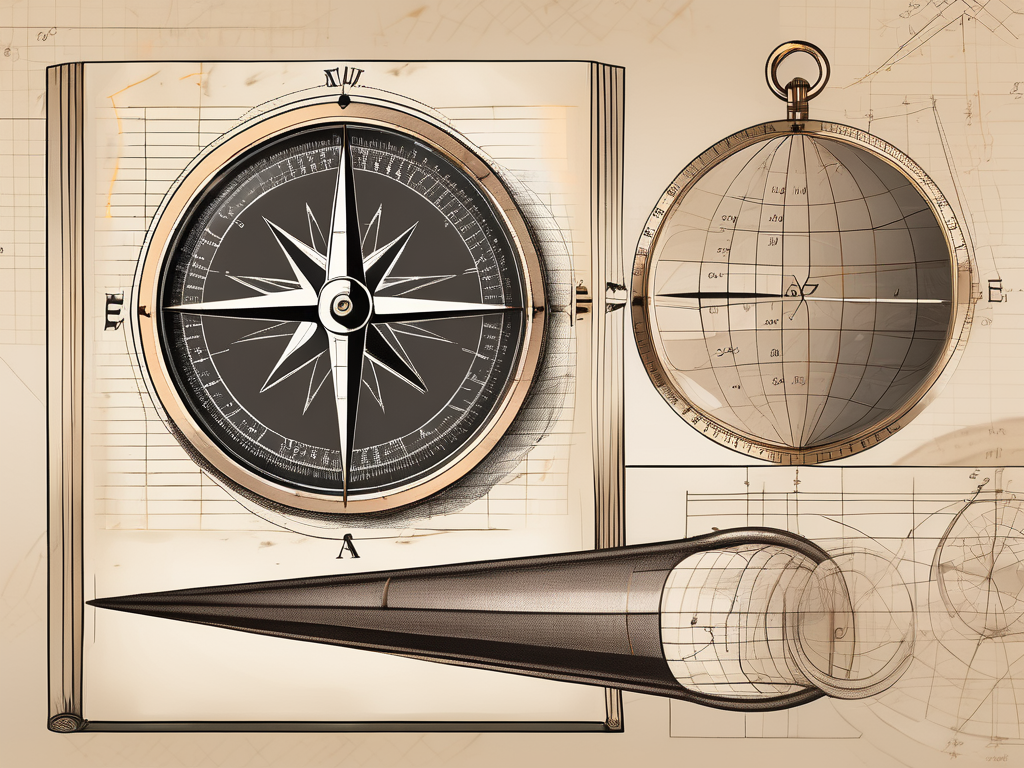
Leonhard Euler’s Contributions to Fluid Dynamics
Leonhard Euler - Fluid Dynamicist
Leonhard Euler was a renowned Swiss mathematician and physicist of the 18th century. His contributions to the fields of mathematics and physics have had a profound impact on the development of these disciplines. In this article, we will delve into Euler's early life and studies, his biggest discoveries and accomplishments, and his contributions and legacy in fluid dynamics.
Early Life and Studies
Born on April 15, 1707, in Basel, Switzerland, Euler showed extraordinary mathematical talent from an early age. Growing up in a devout Protestant family, he received a strong education that nurtured his intellectual curiosity. At the age of 14, Euler enrolled at the University of Basel, where he studied theology and philosophy, but his true passion for mathematics soon became apparent.
Euler's interest in mathematics led him to study under the tutelage of Swiss mathematicians Johann Bernoulli and his sons. The Bernoulli family recognized Euler's exceptional talent and mentored him, fostering his growth as a mathematician. Euler's studies covered a wide range of mathematical topics, including calculus, number theory, and celestial mechanics.
Euler's time at the University of Basel was marked by his insatiable thirst for knowledge. He spent countless hours in the library, poring over ancient texts and manuscripts, eager to uncover the secrets of the mathematical world. His dedication to his studies was unmatched, and he quickly became known among his peers as a prodigious mathematician.
Despite facing significant challenges, such as losing sight in one eye and experiencing financial difficulties, Euler remained steadfast in pursuing his passion for mathematics. His determination and perseverance propelled him forward, setting the stage for his illustrious career.
During his university years, Euler's brilliance shone through in his ability to solve complex mathematical problems with ease. His professors were astounded by his quick thinking and innovative approaches to problem-solving. Euler's classmates often sought his help, knowing that he possessed a unique talent for unraveling the most perplexing mathematical puzzles.
As his reputation grew, Euler began to attract the attention of renowned mathematicians from around the world. Scholars from far and wide sought his guidance and expertise, eager to learn from the young prodigy. Euler's humble nature and willingness to share his knowledge endeared him to his peers, creating a network of mathematicians who would collaborate with him throughout his career.
Despite his extraordinary mathematical abilities, Euler remained grounded and continued to pursue a well-rounded education. He delved into various fields of study, including physics, astronomy, and philosophy, recognizing the interconnectedness of these disciplines with mathematics. Euler's interdisciplinary approach to learning would prove invaluable in his future contributions to the scientific community.
Throughout his university years, Euler's passion for mathematics only grew stronger. He immersed himself in the works of great mathematicians who came before him, such as Isaac Newton and Leonhard Euler. Their groundbreaking theories and discoveries inspired Euler to push the boundaries of mathematical knowledge, eager to leave his own mark on the field.
As Euler completed his studies at the University of Basel, he embarked on a journey that would take him to new heights in the world of mathematics. His unwavering dedication, coupled with his insatiable curiosity, set the stage for a career that would revolutionize the field and establish him as one of the greatest mathematicians of all time.
Biggest Discoveries and Accomplishments
Euler's list of discoveries and accomplishments is extensive, with significant contributions in fields such as number theory, mathematical analysis, and graph theory. One of his most groundbreaking achievements was the development of the calculus of variations, which laid the foundation for optimizing mathematical functions.
In addition to his work in pure mathematics, Euler made notable contributions to physics. He formulated Euler's laws of motion, which expanded upon Isaac Newton's laws and provided a more comprehensive understanding of mechanics. Euler's laws continue to be fundamental principles in classical mechanics, serving as the basis for numerous scientific advancements.
But Euler's impact extends far beyond mathematics and physics. His work on graph theory has had a profound influence on the study of networks and their applications. He introduced the concept of Eulerian paths and circuits, which revolutionized the analysis of networks and paved the way for the development of modern network analysis.
Furthermore, Euler's contributions to graph theory have found applications in various fields. In computer science, his work has been instrumental in designing efficient algorithms for network optimization problems. Transportation planning has also benefited from Euler's ideas, as his concepts have been used to optimize traffic flow and improve the efficiency of transportation networks.
Moreover, Euler's work on graph theory has had a significant impact on the study of social networks. His concepts have been applied to analyze the structure and dynamics of online social networks, helping researchers understand how information spreads and communities form in these digital spaces.
Aside from his groundbreaking discoveries, Euler's prolific output of research papers and books has left an enduring legacy. His collected works span more than 80 volumes, covering a wide range of mathematical topics. His meticulous and rigorous approach to mathematics set a standard for future generations of mathematicians, inspiring them to pursue excellence in their own work.
Overall, Euler's contributions to mathematics, physics, and graph theory have shaped the way we understand the world around us. His ideas continue to be studied and applied in various fields, making him one of the most influential mathematicians and scientists in history.
Contributions and Legacy in Fluid Dynamics
Euler's prowess in fluid dynamics is equally remarkable, with his contributions shaping the field's theoretical foundations. He developed the fundamental equations governing fluid flow, known as Euler's equations. These equations provide a powerful mathematical framework for describing and predicting fluid behavior.
Furthermore, Euler's research in fluid dynamics extended to the study of hydrodynamics, the branch focused on the motion of fluids in both equilibrium and motion. His investigations into the flow of water and air led to advancements in fields such as aerodynamics and naval architecture, influencing the design of airplanes and ships.
Euler's legacy in fluid dynamics continues to influence modern research and engineering applications. His mathematical models and analytical techniques remain pivotal tools for understanding and predicting fluid phenomena, facilitating advances across a range of industries, including aerospace, automotive engineering, and environmental sciences.
In addition to his groundbreaking work in fluid dynamics, Euler made significant contributions to other areas of mathematics and physics. He is widely regarded as one of the greatest mathematicians of all time, having made substantial advancements in calculus, number theory, and graph theory. Euler's work in these fields laid the foundation for many modern mathematical concepts and techniques.
Euler's impact on fluid dynamics can be seen in the numerous applications of his theories in various industries. In the field of aerospace engineering, his equations are used to design efficient and aerodynamically stable aircraft. By understanding the principles of fluid flow, engineers can optimize the shape and structure of wings, reducing drag and improving fuel efficiency.
Similarly, in the automotive industry, Euler's equations play a crucial role in designing vehicles with optimal aerodynamics. By considering the flow of air around a car, engineers can minimize air resistance, improving fuel economy and overall performance. Euler's contributions have also been instrumental in the development of wind turbines, where understanding fluid dynamics is essential for maximizing energy conversion efficiency.
Moreover, Euler's work in fluid dynamics has had a significant impact on environmental sciences. By studying the flow of water in rivers and oceans, scientists can better understand the transport of pollutants and the dispersion of contaminants. This knowledge is crucial for managing and mitigating the environmental impact of human activities, such as industrial waste disposal and oil spills.
In conclusion, Leonhard Euler's impact on mathematics, physics, and fluid dynamics cannot be overstated. Through his remarkable insights and tireless dedication to his craft, Euler's work has shaped the very foundations of these disciplines. His brilliance and legacy will continue to inspire generations of scientists and mathematicians to come.
